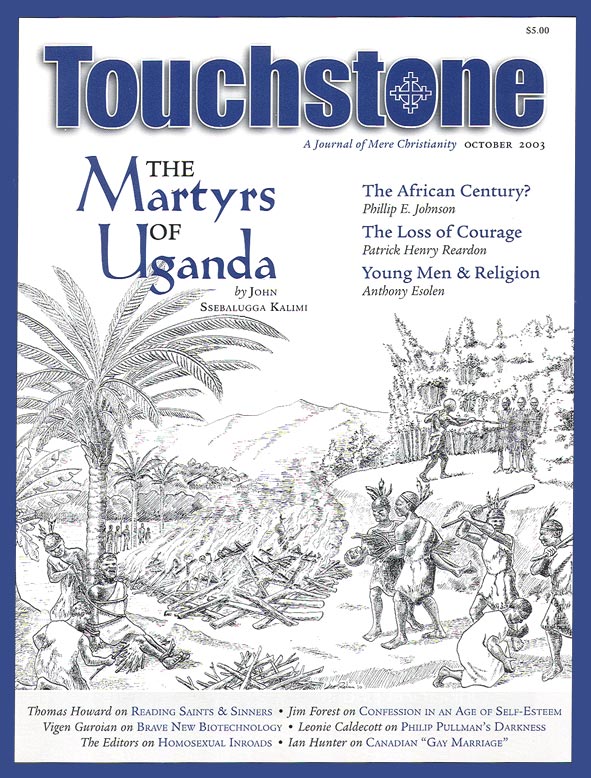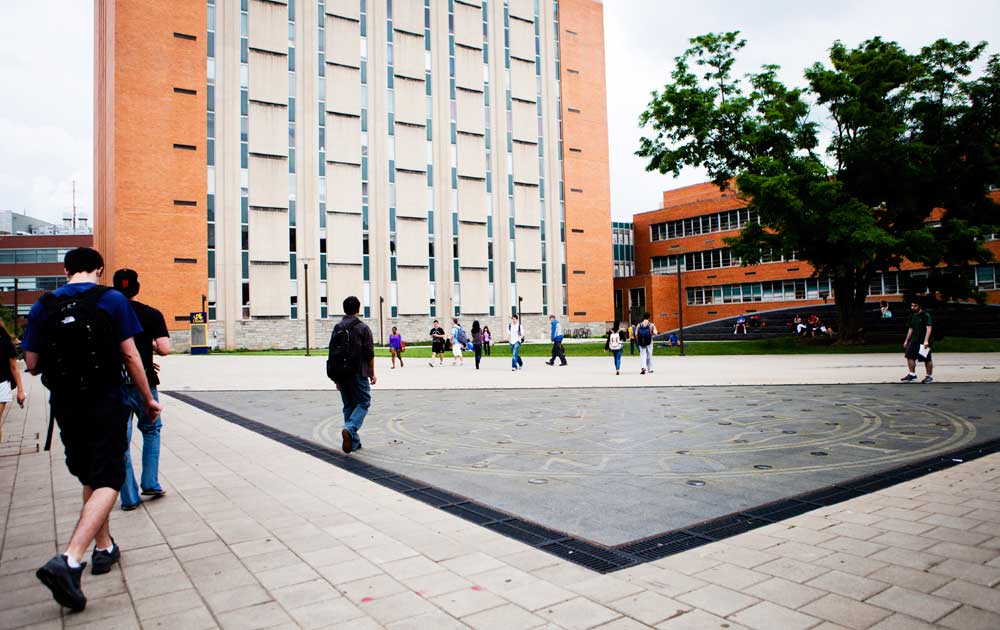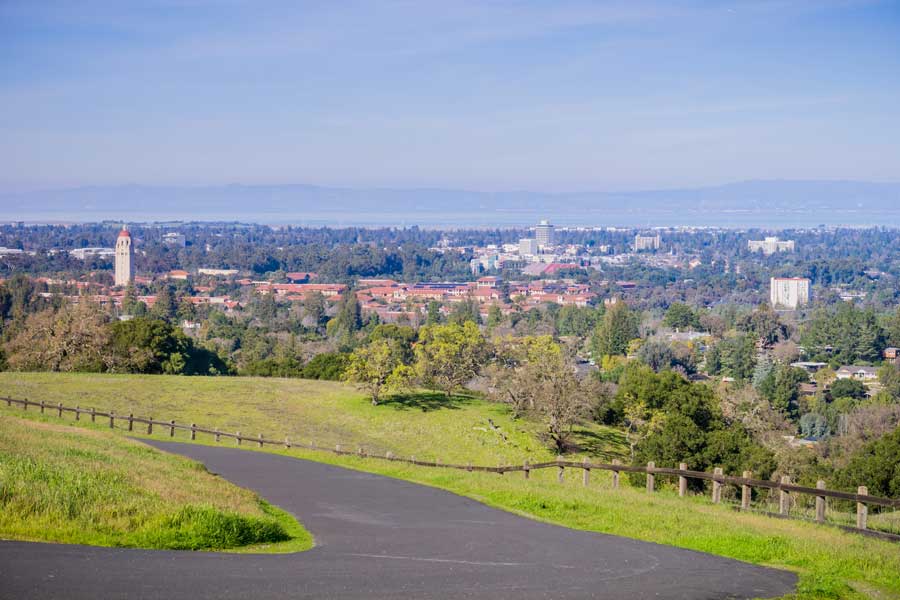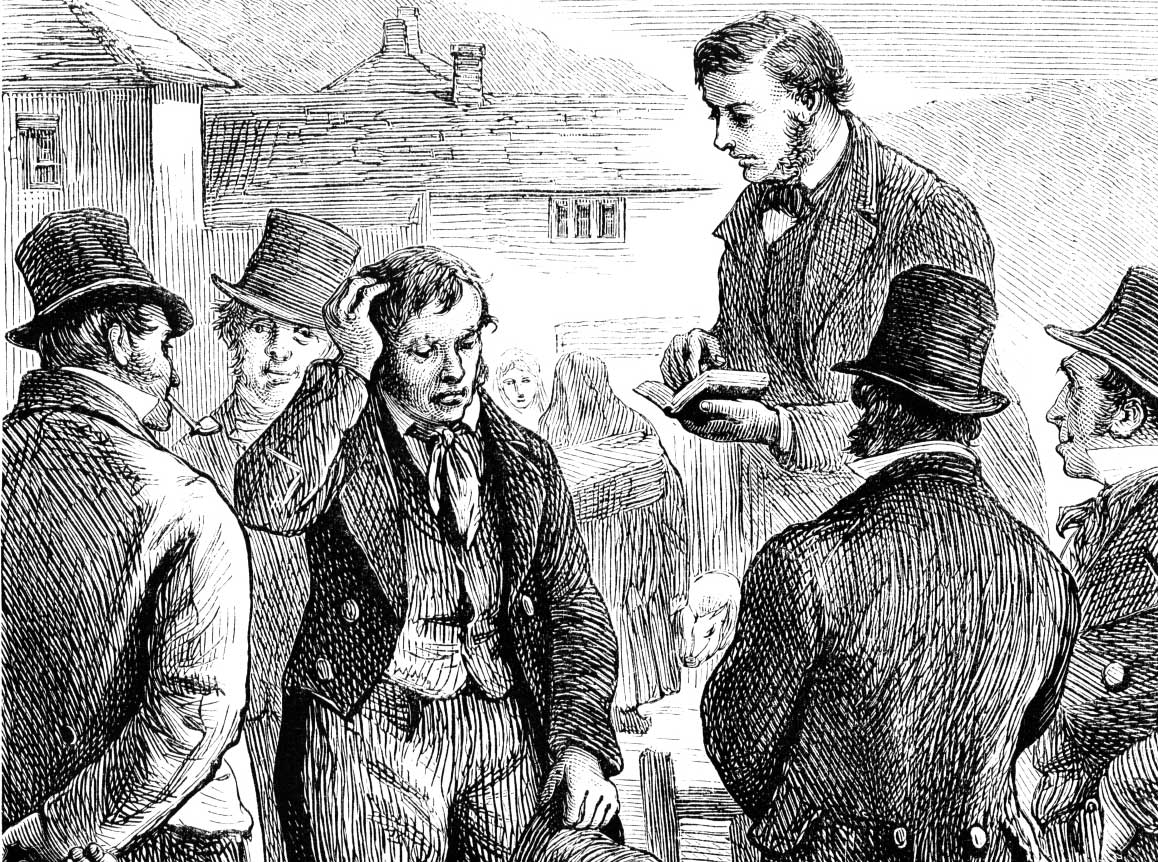Homosexual Inroads
This past June was a bad month for good sex. The Episcopalians got things going. On June 7, the New Hampshire diocese of that body, gathered in convention to choose a new bishop, elected the 56-year-old canon V. Gene Robinson, an avowed homosexual who has cohabited with another man for the past 13 years. The vote was no nail-biter. Robinson won the election by a margin of 96 to 69 among the laity, and a sturdy 58 to 19 among the clergy. Although Robinson is hardly the first active homosexual to be elected a bishop in the Episcopal Church, he is said to be the first Episcopalian who publicly admitted to the fact before being elected.
Moreover, Robinson did not just happen to be a homosexual, nor, it would seem, was he elected in spite of his homosexuality. On the contrary, there is reason to suppose that his homosexuality, or at least his homosexual activism, partly contributed to his popular appeal. Some of those who voted for Robinson drew attention to his formation of “Concord Outright,” a support group for homosexual and otherwise insecure teenagers (in the organization’s own words, “gay/lesbian/questioning”). Others mentioned a sense of “making history” by their vote.
For the past several decades, the Episcopal Church has shown itself increasingly tolerant toward the homosexual vice. Robinson’s episcopal election, however, was not an act of mere tolerance. It appears to have been, rather, the brazen and determined assertion of an ideological program. In placing an active homosexual in its highest available position of honor and executive authority, the Episcopal voters in New Hampshire had in mind to advance the militant homosexual agenda, to approve (in the sense that verb carries in Romans 1:32) of active homosexuality as a habit and way of life. This is certainly how the action of the New Hampshire diocesan convention was interpreted throughout the Anglican Communion, both by those who lamented the election and those who applauded it.
Most Americans, on the other hand, could hardly have cared less. This was just the Episcopal Church, after all, a religious group whose liberal activism, liturgical adventures, and other shenanigans have already cost it roughly one-half of its membership during the past twenty years. Among Americans outside of the Episcopal Church, it is safe to say, there was little concern about what happened in New Hampshire this past June.
But then came the Canadians. On’Œune 10, three days after Robinson’s election, the Ontario Court of Appeal handed down a sixty-page decision that changed the definition of marriage in that province from “the voluntary union for life of one man and one woman” to “the voluntary union for life of two persons to the exclusion of all others.”
This legal determination, jointly formulated by the court’s three judges, climaxed a long series of legal and political developments in Canada, which began in August 1981, when the Toronto city council called on the Ontario government to amend its Civil Rights Code to include “sexual orientation” (not activity, mind you, only orientation) among the prohibited grounds of discrimination. From then on, step by step for two decades, various Canadian courts and other governmental agencies, but especially in the Province of Ontario, relentlessly advanced a complete pro-homosexual agenda into law and public opinion. Consequently, this past June’s decision was in some respects no more surprising than the episcopal election in New Hampshire.
Indeed, a good number of folks were obviously prepared for what the Canadian court did. Over the ensuing week, but starting on the very day of the court’s decision, 89 marriage licenses were issued to homosexual couples by the Toronto city council, 49 to male and 40 to female couples. During that same seven days, at least one such “wedding” was performed. There seems to have been a concerted rush to act on the court’s decision right away, as though to preclude its being reversed by Canada’s Supreme Court. One lesbian activist told the Toronto Star, “If scores of us get married, how do they put the horse back in the barn?” (An unconvincing metaphor, if we may say so. In our own limited experience, it is generally rather easy to put a horse back in a barn.)
There was no need for those anxious couples to worry, as it turned out, because Canada’s government had no intention of appealing to the Canadian Supreme Court. On June 17, exactly seven days after the Court of Appeal’s decision, when opinion polls revealed that a slight majority of Canadians agreed with it, Prime Minister Jean Chrétien announced that pertinent legislation would be introduced to permit homosexual marriages throughout the country. His Liberal party saw nothing to be gained by resisting what had become a popular and growing movement.
We should note, furthermore, that Canada’s new policy on same-sex marriages went significantly further than that of Belgium and Holland, two other countries in which the arrangement is legal. Specifically, these latter countries limit same-sex marriage to citizens and residents, whereas there is no such restriction in Canada. This fact, though not explicitly addressed by the court, was made clear immediately, when the website of the Toronto city council, listing its requirements for marriage licenses, noted that “There are no residency or citizenship requirements.”
The significance of this clause was not lost on Americans living south of the border, and, risking the SARS infection that menaced Ontario at the time, homosexual couples started heading north to tie the knot (if this is the expression we want). Even by June 17, the day of Chretien’s announcement, the Windsor city council had already issued marriage licenses to three such couples from the United States.
Neither the Episcopalians nor the Canadians, however, quite prepared us for what happened on June 26, when the United States Supreme Court, by a vote of six to three, struck down a Texas law that prohibited sexual actions between members of the same sex. Even the most inveterate of optimists, those bold souls prepared to dismiss the Episcopalians as a fringe church and Canada as a fringe country, were hardly prepared for the likes of this. The judicial determination of June 26, Lawrence and Garner v. Texas, which reversed another Supreme Court decision of 17 years earlier, had the practical effect of overturning similar laws in 12 other states.
Patrick Henry Reardon is pastor emeritus of All Saints Antiochian Orthodox Church in Chicago, Illinois, and the author of numerous books, including, most recently, Out of Step with God: Orthodox Christian Reflections on the Book of Numbers (Ancient Faith Publishing, 2019).
subscription options
Order
Print/Online Subscription

Get six issues (one year) of Touchstone PLUS full online access including pdf downloads for only $39.95. That's only $3.34 per month!
Order
Online Only
Subscription

Get a one-year full-access subscription to the Touchstone online archives for only $19.95. That's only $1.66 per month!
bulk subscriptions
Order Touchstone subscriptions in bulk and save $10 per sub! Each subscription includes 6 issues of Touchstone plus full online access to touchstonemag.com—including archives, videos, and pdf downloads of recent issues for only $29.95 each! Great for churches or study groups.
Transactions will be processed on a secure server.
more on sex from the online archives
more from the online archives
calling all readers
Please Donate
"There are magazines worth reading but few worth saving . . . Touchstone is just such a magazine."
—Alice von Hildebrand
"Here we do not concede one square millimeter of territory to falsehood, folly, contemporary sentimentality, or fashion. We speak the truth, and let God be our judge. . . . Touchstone is the one committedly Christian conservative journal."
—Anthony Esolen, Touchstone senior editor













